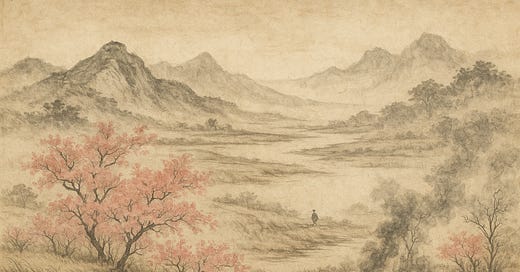Pentecost Reflections – Renewal in Times of Change
To all my readers—wherever you may be in the world—warm greetings on this Pentecost weekend!
While Pentecost is rooted in Christian tradition, its broader symbolic themes—renewal, inspiration, and the power of unseen forces to bring about transformation—offer something meaningful to reflect on, no matter your background or beliefs.
As is customary during festivals, I like to share a piece of classical Chinese poetry. Today, I’ve chosen a short yet profound quatrain by Bai Juyi, a literary giant of the Tang dynasty.
白居易
离离原上草,
一岁一枯荣。
野火烧不尽,
春风吹又生。
It reads in English something like:
“Grasses of the Open Plain”
Endless the grass upon the plain,
Each year it fades, and grows again.
No fire can burn its roots away –
Spring winds return, and it obeys.
A Moment of Interpretation
This brief poem is not merely about grass. It encapsulates the natural rhythms of decay and rebirth—a theme deeply resonant both in Daoist and Buddhist worldviews. The grass, modest and unyielding, represents resilience not through confrontation, but through its deep alignment with nature’s cycles.
Even when external forces—symbolized by wildfire—seek to erase it, the grass returns with the gentleness and inevitability of spring. In a time when global affairs, and especially China’s social and economic landscape, feel volatile and uncertain, Bai Juyi’s verse reminds us that regeneration is a quieter, yet more powerful, force than disruption.
Closing Thought
As we pause this weekend—whether for rest, reflection, or reconnection—may we find value in the enduring, often invisible forces that shape our world. In the spirit of the poem, may resilience guide us, and may the “spring wind” always find its way back to us.
Wishing you a meaningful holiday wherever you are,
Dói Ennoson





